Multiculturalism in the Mediterranean
페이지정보
내용
Multiculturalism in the Mediterranean
Author : Mona Farouk M. Ahmed(Institute for Mediterranean Studies, BUFS)
The Mediterranean region is a region distinguished by its cultural diversity through history. The Mediterranean Sea played a linking role between the surrounding different cultures resulting in cultural exchange while adding richness to that cultural diversity in this region.
The question is: did this cultural diversity lead to a case of multiculturalism in the Mediterranean region? The same question can be asked by another way: Can we call this cultural diversity in the Mediterranean region “multiculturalism”? To answer this question, let us start with the explanation of the concept of “multiculturalism”.
The Concept of Multiculturalism:
The concept of multiculturalism refers to the case of societies that have cultural diversity while maintaining the distinctive identities of different cultural groups living within those societies. In this sense, multiculturalism is opposite to the concept of “cultural melting pot” assimilating different cultural groups into the dominant culture. Thus, the issue of minorities is relative to the concept of “multiculturalism” as it defends the rights of those minorities to maintain their distinct cultural features.
Cultural Diversity and Multiculturalism in the Mediterranean:
The cultural diversity is quite notable in the Mediterranean region. Variety of races and languages can easily be noticed. The old civilizations emerged in the Mediterranean region included cultural exchange throughout history that can be seen in its monuments proving the coexistence of different cultural groups under the control of rulers of different cultures. Those rulers adopted some cultural features of the people they ruled who also influenced by the culture of the ruling elite. In this context, the Greek-Roman monuments in Egypt and the Pharaonic features of monuments in Rome can be evidences. That mutual cultural influence can be traced through languages, architectures, customs, and other cultural features of those countries of the Mediterranean region.
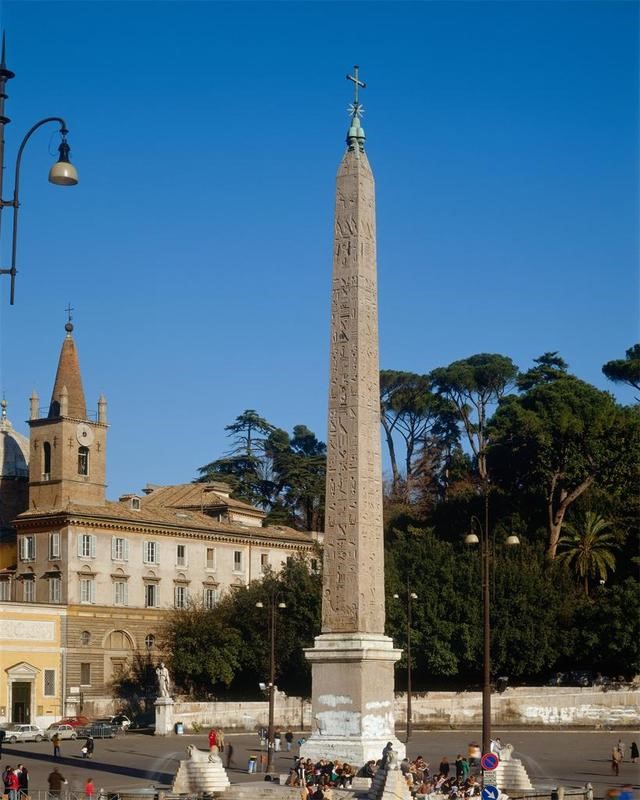
Picture of the Egyptian Flaminian obelisk in the Piazza del Popolo, Rome
Source: http://omeka.wellesley.edu/piranesi-rome/exhibits/show/romanobelisks/flaminian
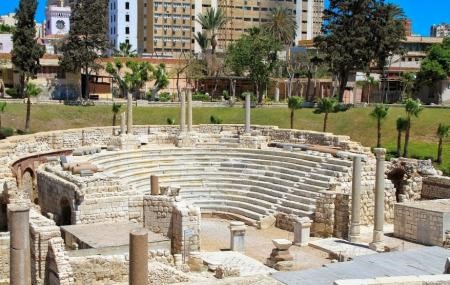
Picture of the Roman Amphitheatre in Alexandria, Egypt
Source: https://www.triphobo.com/places/alexandria-egypt/roman-amphitheatre-and-kom-el-dikka
The concept of Multiculturalism includes the recognition of minorities differentiated rights so that they have the freedom of maintaining and practicing their own distinctive culture. The culture practice includes religion, language, arts, food, clothes, and other features of culture. Each Mediterranean countries has its dominant culture that influenced by the region and the cultural exchange with its neighboring countries. We can see this influence through the common features of the Mediterranean cultures. One simple example for this influence can be seen in the Mediterranean cuisine with its common features within the different Mediterranean countries. From the other hand, issues of minorities and refugees in the Mediterranean region may include some challenges on applying the concept of Multiculturalism in the Mediterranean countries.
Minorities and Multiculturalism in the Mediterranean:
The cultural diversity is quite notable in the Mediterranean region. Varieties of languages such as Greek, Italian, Spanish, Arabic, Turkish, …. etc., varieties of races including the so-called Mediterranean race, in addition to other race classifications of Greeks, Romans, Turks, Arab, Berbers, Jews and many other ethnic groups. The religious cultures also diverse to include not only Christianity, Islam, and Judaism but also a variety of the sects of those religions. The countries in the southern coast of the Mediterranean Sea are mostly Muslims while the countries in the northern coast are mostly Christians. However, each Mediterranean country would have different mixture of this cultural diversity.
Many factors contributed to the formulation of the cultural diversity in the Mediterranean countries. Some of those countries had cultural diversity due to a history of colonization left its impacts on its cultures and divided ethnic groups through the boarders of those countries. Berbers (Amazigh people) in the North African countries of the southern Mediterranean coast can be an example for those groups distributed in Egypt, Libya, Tunisia, Algeria, and Morocco. Berbers struggle to maintain their culture and identity resulted in establishing a Royal Institute of Amazigh Culture in Morocco and to get their language (Tamazight) to be officially recognized in 2011. In this sense, we can use the word “multiculturalism” to describe those efforts of Morocco to grant Berbers with those cultural rights.
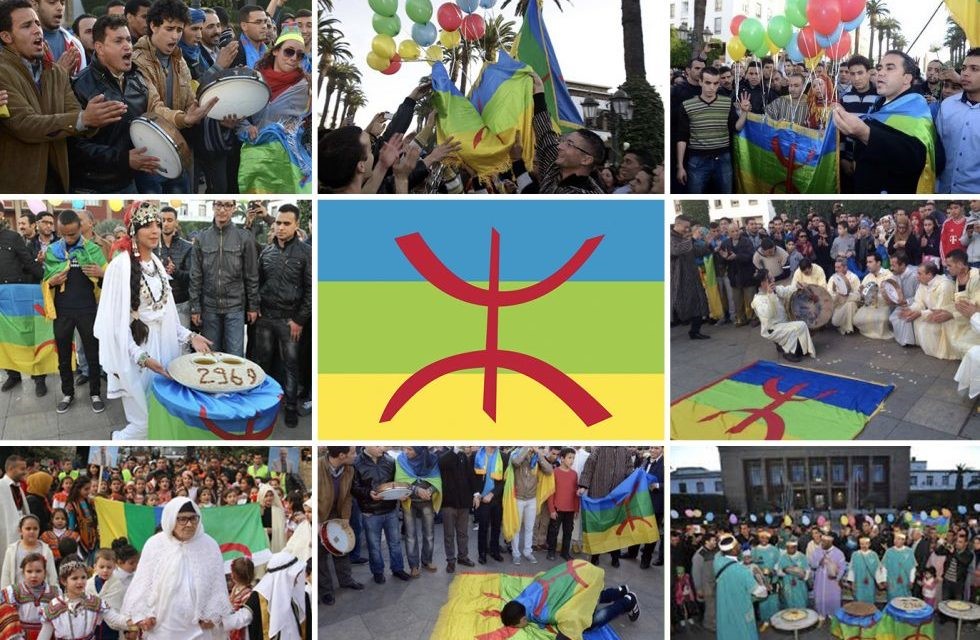
Pictures of Berbers Celebrating the New Amazigh Year in Morocco
Source: https://insidearabia.com/culture-politics-amazigh-new-year/
Other examples can be seen in Nubians living in Egypt. They were separated from their peers in Sudan due to the colonization decision fixing the boundaries between Egypt and Sudan through the Agreement of 1899 which divided the Nubians between the two countries. Since then, Nubians struggled to maintain their identity and their rights. As a result, in 2015, Nubians attain a political achievement as they could assign their own parliamentary seat for first time in Egypt’s parliament. Till now, Nubian activists still feel the need of their struggle to maintain their rights.
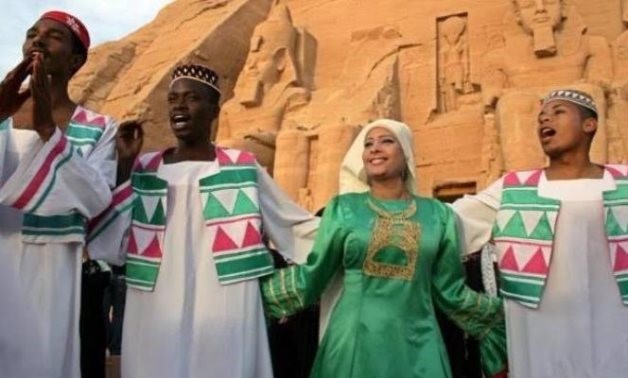
Picture of Nubians celebrating the world Nubian day on 7 July 2020
Source: http://egypttoday.com/Article/4/89362/July-7-marks-World-Nubian-Day
Migrations and Multiculturalism in the Mediterranean:
We can see the migration as another factor contributing to the issue of multiculturalism in the European countries of the northern coast of the Mediterranean. Many various ethnic groups have migrated to those countries over the centuries. Some settled centuries ago, while the recent two centuries witnessed almost the vast majority of those migrants. Spain, Italy, Greece, Turkey, and Malta are vivid examples for this influence of migration since they are considered as the crossing gate for Europe. The increase of refugees due to the conflicts in Syria and other regions resulted in a refugee crisis described as the worst through history. This crisis included serious challenges on those Mediterranean countries concerning with its impact on the multiculturalism of their societies. The Islamophobia is one of those challenges threatening the efforts supporting multiculturalism.
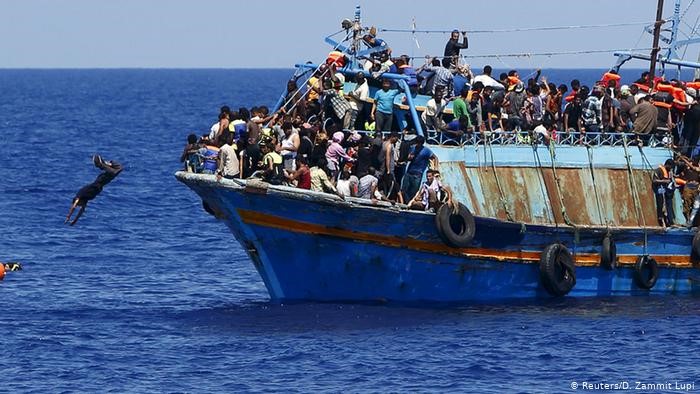
Picture of a refugees’ boat in the Mediterranean Sea
Source: https://www.dw.com/en/thousands-of-refugees-intercepted-in-mediterranean/a-18667530
Accordingly, the Mediterranean countries face challenges to promote the multiculturalism in their societies. Many issues including refugees and minorities rights are related to the application of multiculturalism. Thus, speaking about multiculturalism is more complicated than describing the cultural diversity in the Mediterranean region, as multiculturalism implies guarantees for minorities rights including their freedom of maintaining their own cultures. We can’t generalize the status of minorities in the Mediterranean countries as some of those minorities still have conflicts with their states demanding for their rights.
References:
- Song, Sarah. 2010. "Multiculturalism." Stanford Encyclopedia of Philosophy. Sep 24. https://plato.stanford.edu/entries/multiculturalism/.
- https://www.britannica.com/topic/multiculturalism
- https://www.britannica.com/topic/Berber
- https://minorityrights.org/minorities/nubians/
- https://jsis.washington.edu/euwesteurope/multiculturalism-migration-mediterranean/




